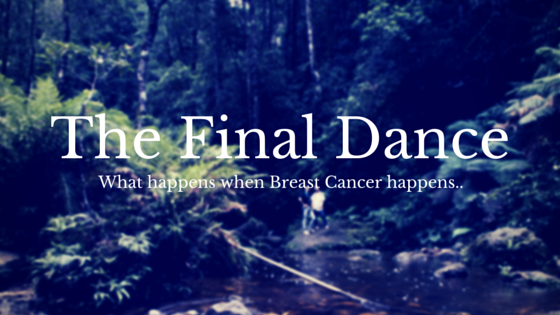Since my Cancer diagnosis, I've been looking at the world from the other side of the lens. Before this, I was the friend or
family member who was perplexed at how to support my loved ones in times of
sickness and grief. We all know and understand what a difficult task it can be.
Should I call or text? Should I
address the elephant in the room or circumvent the issue totally so the
situation seems lighter? Should I pay a visit at the hospital or wait until the
person is back home to meet him or her? Would this be violating someone’s
privacy? What are the questions that are okay to ask? So on and so forth.
Now that the shoe is on the other
foot, I'm beginning to get glimpses of what might be some of the appropriate things to do. In the hope that this may help other people in
similar situations, I am penning down my thoughts on cancer etiquette.
Before I air my own views on it,
I would highly recommend everyone to read this
article written by Kate Gross who was diagnosed with Colon Cancer and was
told she won’t survive it (sadly she didn’t). Though written by a terminally
ill patient and intended for people dealing with such a person, this is a
useful primer for anyone who has a friend or family battling with disease. My
most useful takeaway was this infographic she used.
Kate’s 'spiral’ plate
(JOHN LAWRENCE)
In this spiral, Kate placed different
people along different arcs on the curve based on the proximity of the
relationship between her and that person. So her partner and children are almost
at the centre and farthest away are friends’ friends.
When visiting someone who is battling
a disease, one must understand where they lie in the person’s spiral. The thumb
rule is you provide support to the people closer than you and seek support from
ones that are further away in the spiral. That seems so elegant in its
simplicity. This way the patient would never need to console other people in
their grief. And each of us can be pillars of support or be comforted depending on who we talk with.
Now for some of my observations on
this:
1. Every
disease is different. Some have shorter cycles, others take a long time to be
treated. Cancer specially is one of those diseases that can take anywhere
between 6 months to many years to be treated (not considering recurrence and
any unforeseen complications, etc.) The maximum support and wishes one receives
is within the first week of the cancer announcement. With every passing day, less and less people will ask how you are doing. Even lesser would offer
help for various tasks. If you really want to support your friend or family
member, consistency is the key. How often you want to check on them is your
call but writing endearing messages in the first week and disappearing after
that just doesn't help or make sense.
2. Many
friends who were silent for many days finally wrote back and told me they didn’t
know what to say. I completely understand where they are coming from but saying
something is always better than saying nothing. I understand it’s a delicate
balance and a daunting task but I guess that is what growing up is all about. You
need to figure out a way to reach out. If you can’t think of what to say or
write, read about it. And then try reaching out to your friend or family member.
3. Texting/
mailing/ letters are always better than phone calls, especially in the initial
few days. Multiple doctor visits, dozens of tests, difficult decisions and
above all coming to terms with the judgement itself exhausts the person.
Written communication gives more control to in terms of when one is okay to
read it and respond.
4. I
am often quite divided about how I feel about external support because I want
it and still don’t want it to overwhelm me. I am always happy to receive little
notes of love and sometimes just a hey! But if and when there is an expectation
attached to it, I get overwhelmed. I guess the patient and person have to find
a rhythm where both are comfortable, more the former than the latter.
5. Just
because I have cancer doesn't mean I don’t want to hear what is going on in
your life. I strive to let as little change in my life as possible. I would
love to hear about your recent indulgence or heartbreak or in law trouble or stories
of your little one growing up. I would love for you to share everything that we
did before all this happened. Like the old times.
6. Lastly,
we all are living on planet Google and there is no excuse for you to not read a
little bit about the disease. It will give you a sense of what is going on with
me and what the next few months look like. It also helps if I can have more specific
discussions with you where I will be able to share more about what’s going on. Frankly speaking, it's quite tiresome explaining in minute detail about the nature of the disease in order to discuss, say, options that I'm evaluating at that time.
I have always been socially
awkward. I am known to not pick up calls and disappear for months all together.
Despite being this way, I would like to believe that I am not a fair weather
friend and that when a friend needs support I wouldn't fail them.
If you have a friend or family
you care for and she has found herself in a difficult situation, think and
reflect what you can do to stand by them. Isn’t this what sharing meaningful relationships
is about?
A!

